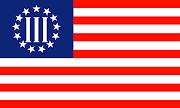The Truth About Tolerance
The Truth about Tolerance
How Our Therapeutic Thinkers Threaten Western Values.
by Bruce Thornton
Acceptance of a double standard has always been a sign of inferiority. To let someone behave according to one set of principles or values while demanding that you be subjected to others is to validate a claim of superiority that justifies the inconsistent and unfair behavior. A double standard can also reflect incoherent thinking, a failure to apply consistently a principle that presumably has universal validity. In the West’s struggle with Islamic jihad, doubts about the superiority of Western values have coupled with a breakdown in ethical reasoning. The result is the appeasement of jihadist aggression and the confirmation of the jihadist estimation of the West’s corruption.
That’s why many Muslims demand from Westerners a hypersensitivity to Islam, all the while that Christians and Jews in Muslim countries are subjected to harassment, assault, and the looniest kinds of slander and insult. In the West, respect for Muslim ways such as the veil for women is supposed to be granted as a self-evident right beyond argument or debate. Yet Western ideals and values, such as the equality of the sexes, are derided, disrespected, and rejected as self-evident evils. The worst inconsistencies, however, involve the violation of core Western ideals, most importantly free speech. Many Muslims demand the right to deny the Holocaust, recycle Nazi-era anti-Semitic drivel, characterize Christianity as polytheistic idolatry, and excoriate a decadent, corrupt Western civilization. But no such criticism of Mohammed or Islam is tolerated, but it is, in fact, met with violence and threats.
The past few years have seen numerous examples, from the riots over the extremely mild political cartoons featuring Mohammed, to the uproar over the Pope’s quotation of a Byzantine emperor. The exercise of free speech in all these cases is met with rage, violence, and hysterical demands of “respect” for Islam, but there is no reciprocal respect for Western values. And for the most part, we in the West go along with this double standard, and thus accept the logic of the jihadist position: we are weak and unsure of our beliefs. Our craven behavior is a sign of our inferior status and our justified subjection to those who passionately believe in the rightness of their faith.
Let’s be clear on the roots of this cowardly response — the West has lost its faith. We have created John Lennon’s juvenile utopia in which there is “nothing to kill or die for, and no religion too.” Shorn of transcendent validation, now all our beliefs are contingent and negotiable, easily traded away for security or comfort. At the same time, the therapeutic mentality bestows on the non-Western “other” a finely calibrated sensitivity to his culture, no matter how dysfunctional, all the while the West refuses to extend such consideration to its own. Why would it? Haven’t generations of Western intellectuals and artists told the world how corrupt and evil the West is? Having culturally internalized this self-loathing, we are vulnerable to those who are filled with passionate intensity about the rightness of their beliefs and the payback due to us for our various historical sins such as colonialism or imperialism or globalization. And then we wonder why the jihadist considers us ripe for conquest, and destined to be subjected to the superior values of Islam.
Consider the following cautionary tale, from San Francisco State. Last October the College Republicans held an anti-terrorism rally during which posters painted to look like the flags of the terrorist gangs Hamas and Hezbollah were walked on. Since those flags have the name of Allah in Arabic, a complaint was filed in which the College Republicans were accused of “incitement,” “creation of a hostile environment,” and “incivility.” The complaint is now headed for trial before one of those campus star chambers created to monitor and police student behavior.
You don’t have to be a Constitutional scholar to see that this investigation is a gross violation of the students’ First Amendment right to free speech. This sort of institutional intervention creates what the ACLU — which never seems to make a peep about this sort of “progressive” censorship — likes to call a “chilling effect.” The Vice President of the Foundation for Individual Rights in Education, Robert Shilbey, has pointed out the obvious: “At a public university, stepping on a flag — even burning an American flag — is without question a constitutionally protected act of political protest. The right to protest is at the very heart of the First Amendment, and means nothing if only inoffensive expression is permitted.”
Here’s where the double standards and incoherence of much politically correct behavior comes in. On any college campus in this country, every day, inside of class and out, you can encounter speech that is “insensitive,” “uncivil,” or “hostile.” But of course, this speech is directed towards Christians, or “conservatives,” or Israel, or Republicans, or “straight white males.” Nobody attempts to censor this speech or haul people before tribunals to answer vague charges such as “incivility,” which will be defined according to the subjective standards of the complainants. And if someone does complain, the faculty and administration will immediately go into high dudgeon mode and start preaching the glories of unfettered free speech no matter how offensive. In other words, free speech for me but not for thee.
But the ill effects of this hypocrisy are nothing compared to the damage done when the institution caters to the unreasonable demands of those Muslims who, convinced of their spiritual superiority and righteousness, are active enemies of the West and think they are justified in imposing their standards on everybody else, even if those standards violate a core political value such as free speech. And when the appeasement comes from the university, which supposedly exists in order to foster what Matthew Arnold called “the free play of the mind on all subjects,” the message is quite clear: we don’t really believe in all these goods we profess and benefit from, but we will abandon them a











|